| | New AI deals spark bubble worries, Tesla signals an EV slowdown, and the potential for easy progress͏ ͏ ͏ ͏ ͏ ͏ |
| |  | Flagship |  |
| |
|
The World Today | 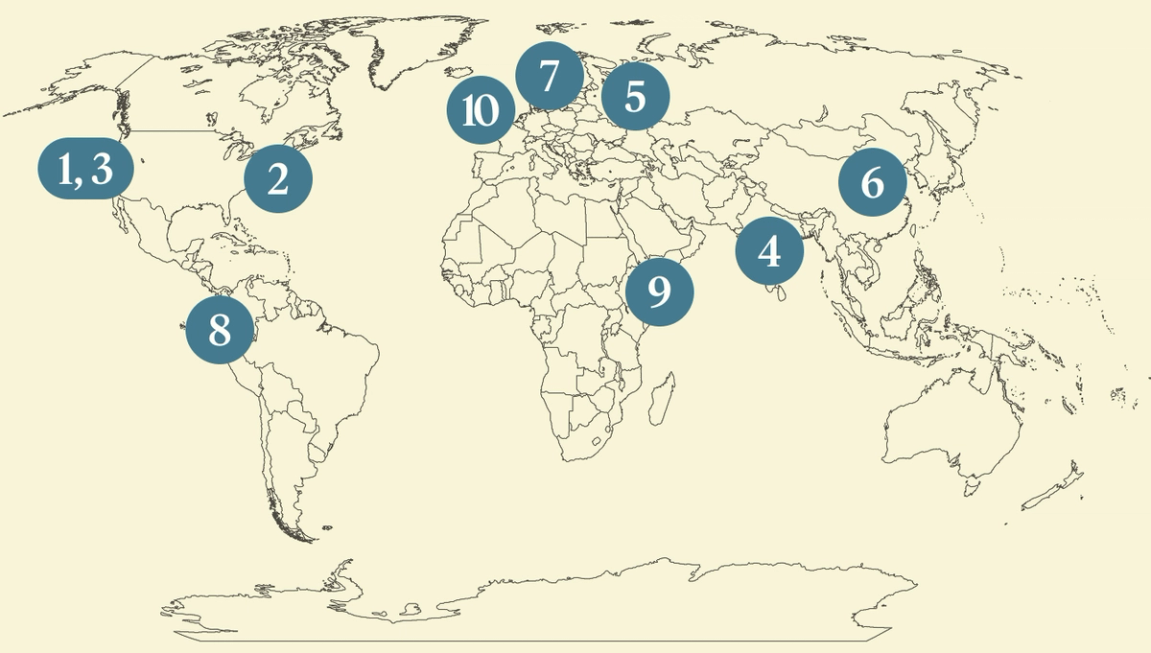 - AI deals circularity fears
- JPM breaks even on AI
- EV industry slowdown
- Starmer’s passage to India
- Russia’s ‘Axis of Upheaval’
- China pessimism crackdown
- Trio win chemistry Nobel
- Unrest in Ecuador
- Somaliland push picks up
- Contrails’ climate impact
 A century of The Shipping Forecast, and a Kusama retrospective in Switzerland. |
|
AI deals spark circularity fears |
|
Dimon says AI input has paid off |
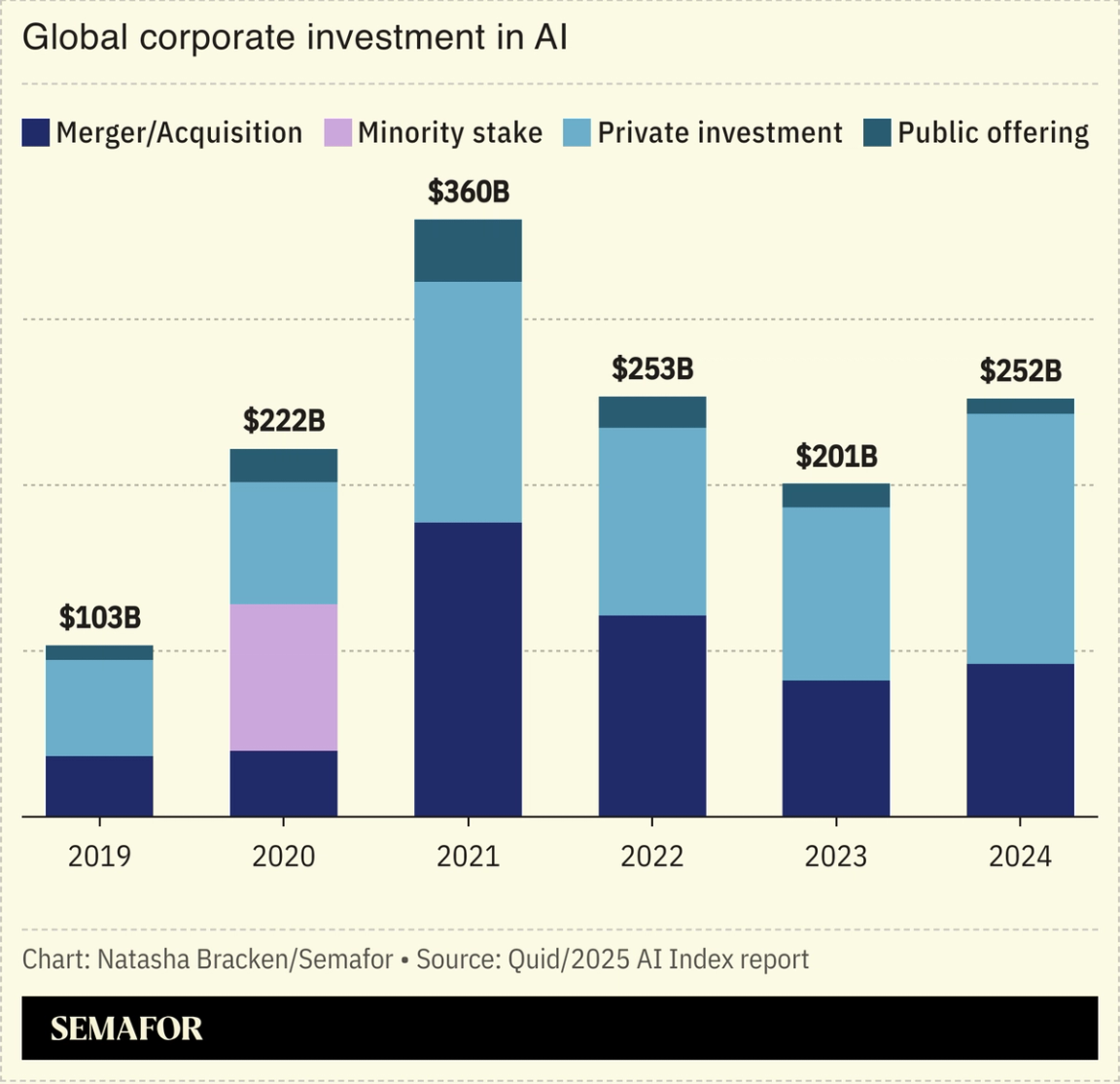 JPMorgan CEO Jamie Dimon said the money the bank has poured into AI has already begun paying for itself. The company invests about $2 billion a year in AI, but has reduced headcount and improved efficiency to save at least the same amount, Dimon told Bloomberg. The CEO has long been bullish on AI, suggesting it could mean that future generations “are going to live to 100 [and]... probably be working three-and-a-half days a week.” Still, “businesses aren’t yet sure if the benefits of AI services are worth what tech firms want to charge for them,” The Information wrote, and economists have long predicted shorter work weeks — John Maynard Keynes famously suggested the idea in 1930 — to little avail. |
|
Investors cool on Tesla price cuts |
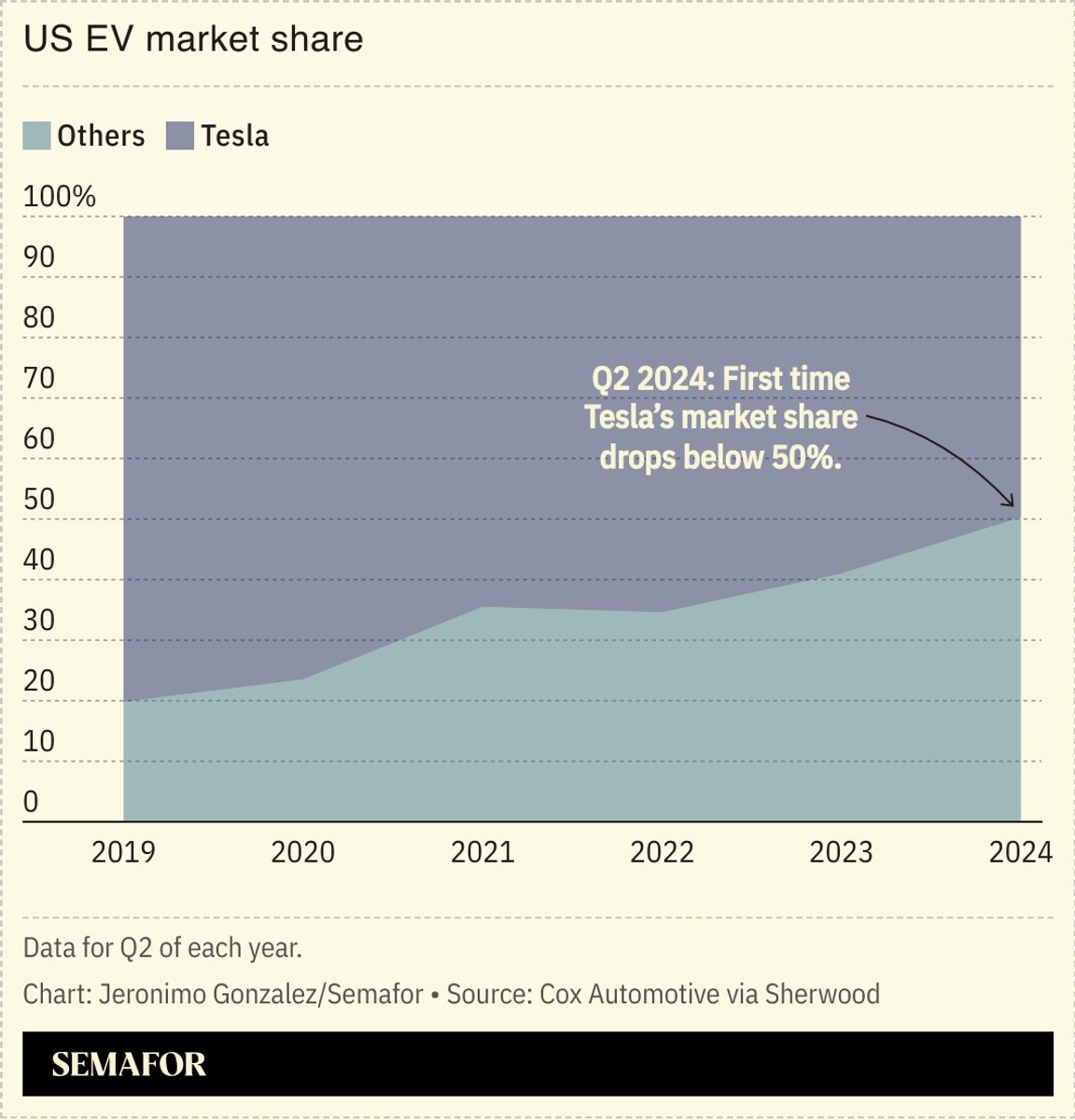 Tesla unveiled lower-cost versions of its most popular models in order to boost flagging sales in the face of Chinese dominance in the global EV sector. The end of US subsidies has hit the industry, and carmakers around the world are “falling back in love with petrol,” the Financial Times reported. Ford, General Motors, and Honda are all betting on a longer future for internal combustion engines, while calls are growing for an EU ban on petrol by 2035 to be relaxed. Only China continues to go all-in on electric cars, raising fears that the West could fall behind: Tesla’s moves left investors underwhelmed. |
|
Starmer in India to boost business ties |
 Leon Neal/Pool via Reuters Leon Neal/Pool via ReutersBritish Prime Minister Keir Starmer is leading a business delegation to India, part of efforts by London to court a fast-growing economy and reduce its vulnerability to protectionism from its biggest trading partners. Britain has in recent months been hit by US tariffs targeting key export sectors and now faces the prospect of its steel sales to the EU — a major market — being curbed. The trip won’t be smooth sailing, though. Starmer faces domestic pressure over immigration, and easing visa restrictions is one of India’s key demands. The British leader will also likely ask his counterpart about New Delhi’s seemingly deepening ties with Moscow: India’s prime minister wished Russia’s president a happy birthday this week. |
|
Russia and the ‘Axis of Upheaval’ |
 Sputnik/Alexander Kazakov/Pool via Reuters Sputnik/Alexander Kazakov/Pool via ReutersRussia is sharing important battlefield lessons it has gleaned from its Ukraine invasion with China, Iran, and North Korea, a leading analyst argued in Foreign Affairs. The assessment contradicts Western conventional wisdom that Moscow has approached the conflict more as a meat grinder than with strategic nous. “Russia realizes that warfare is changing, so its military must change, as well,” the piece said. It comes amid mounting evidence of cooperation between what Washington hawks have dubbed the “Axis of Upheaval”: China is reportedly helping Iran evade US sanctions with a barter-like trading system, and is an increasingly critical investor in Russia, while Beijing’s premier is due in Pyongyang this week. |
|
China cracks down on pessimism |
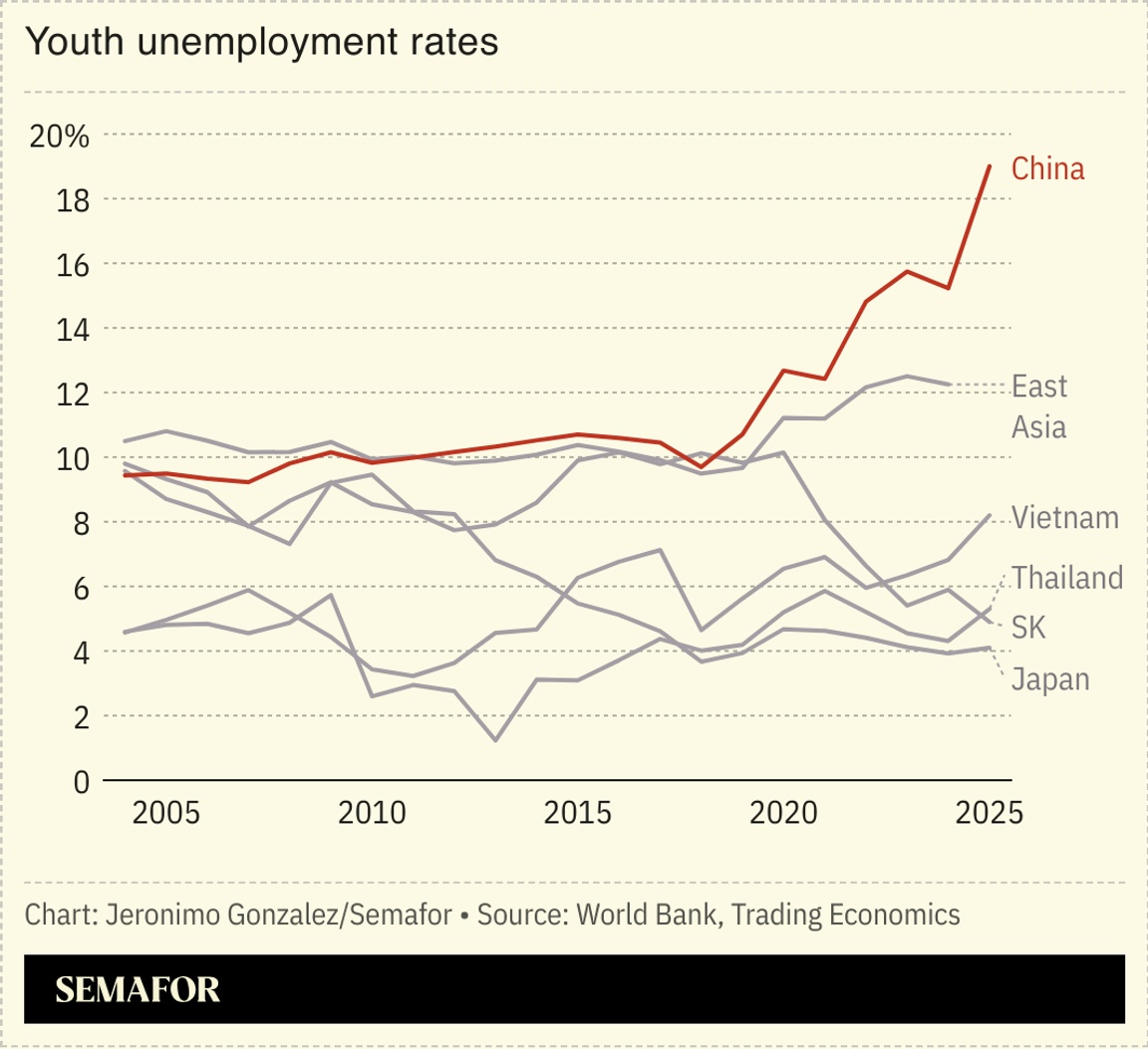 Chinese censors are ramping up their crackdown on online dissent as internet users become increasingly vocal over the country’s economic slowdown. Authorities have punished numerous bloggers, including one who observed that China still lags far behind the West in terms of quality of life. The campaign looks to silence “excessively pessimistic sentiment,” according to a government agency. Young people in China face tough prospects: Youth unemployment reached 19% in August, with more than 12 million new college graduates every year competing for too-few jobs. Meanwhile, thousands have complained of a recent decision by Beijing to attract high-end foreign talent. “We’ve got plenty of talent here already, so I don’t really get it,” one social media user wrote. |
|
Nobel for metal-organic frameworks |
 Susumu Kitagawa, Richard Robson, and Omar M. Yaghi. Niklas Elmehed. Nobel Prize. Susumu Kitagawa, Richard Robson, and Omar M. Yaghi. Niklas Elmehed. Nobel Prize.The 2025 Nobel Prize for Chemistry was awarded for the creation of metal-organic frameworks, molecular structures that can capture CO₂, filter pollutants from water, or trap moisture from desert air. Susumu Kitagawa, Richard Robson, and Omar Yaghi discovered that copper ions could be used to create a crystal with large cavities within it, which was porous to smaller atoms and molecules but blocked larger ones. The materials act as customizable molecular sponges: The cavities can be made in different forms, allowing the sponges to capture or process different substances, and opening up enormous possibilities for environmental and industrial applications. |
|
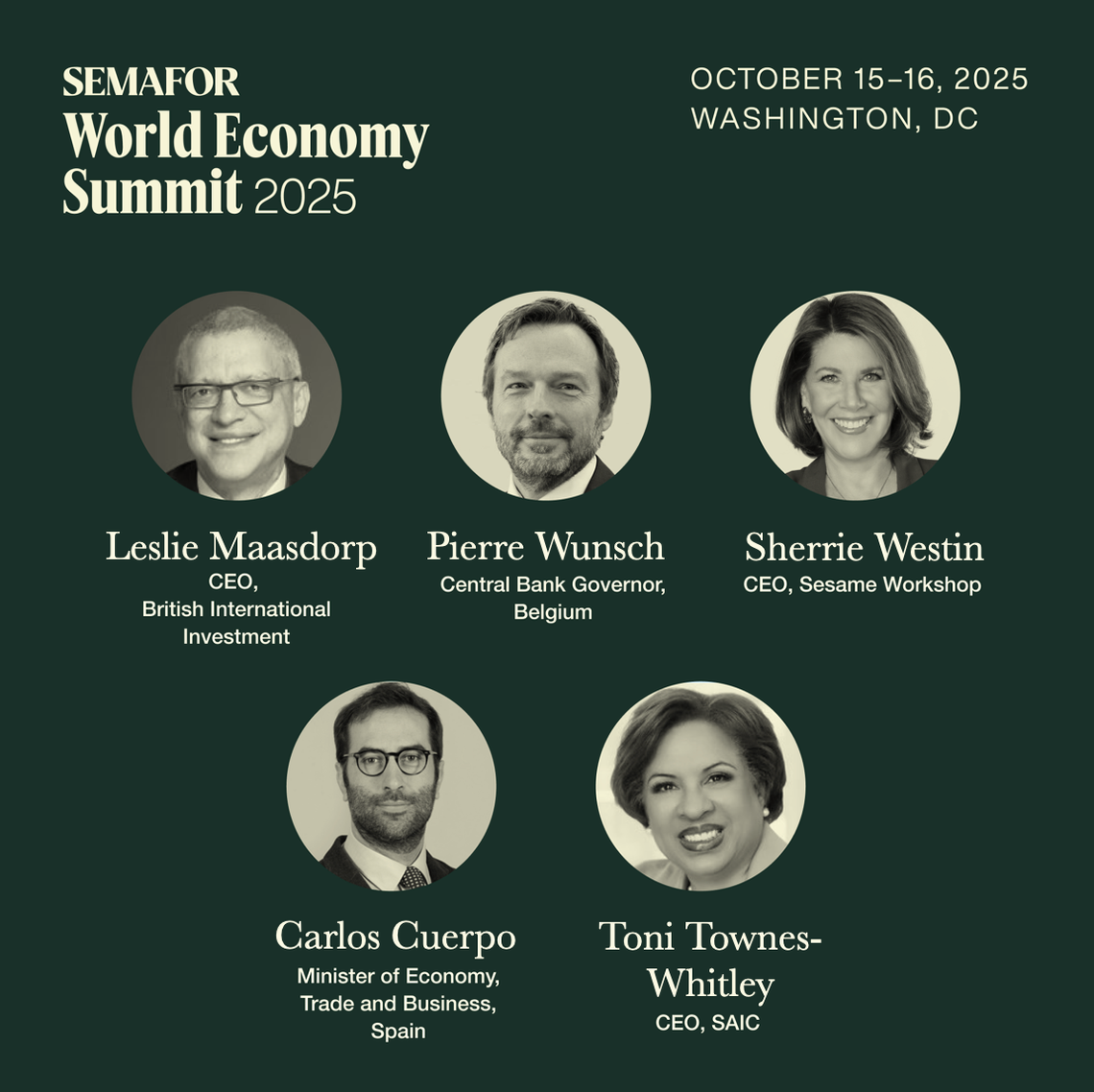 Leslie Maasdorp, CEO, British International Investment; Pierre Wunsch, Central Bank Governor, Belgium; Sherrie Westin, CEO, Sesame Workshop; Carlos Cuerpo, Minister of Economy, Trade and Business, Spain; and Toni Townes-Whitley, CEO, SAIC, will join the stage at the Fall Edition of Semafor’s World Economy Summit. Hosted in the Gallup Great Hall and spanning eight sessions over two days, the summit will feature on-the-record interviews on the state of global growth and finance, AI advancements, powering global energy needs, and the forces reshaping the world economy. Each session brings together the leaders and forces most directly shaping the global economy, with programming powered by Semafor’s world-class editorial and executive leadership. Oct. 15 & 16, 2025 | Washington, DC | Request Invitation |
|
Protesters target Ecuador president |
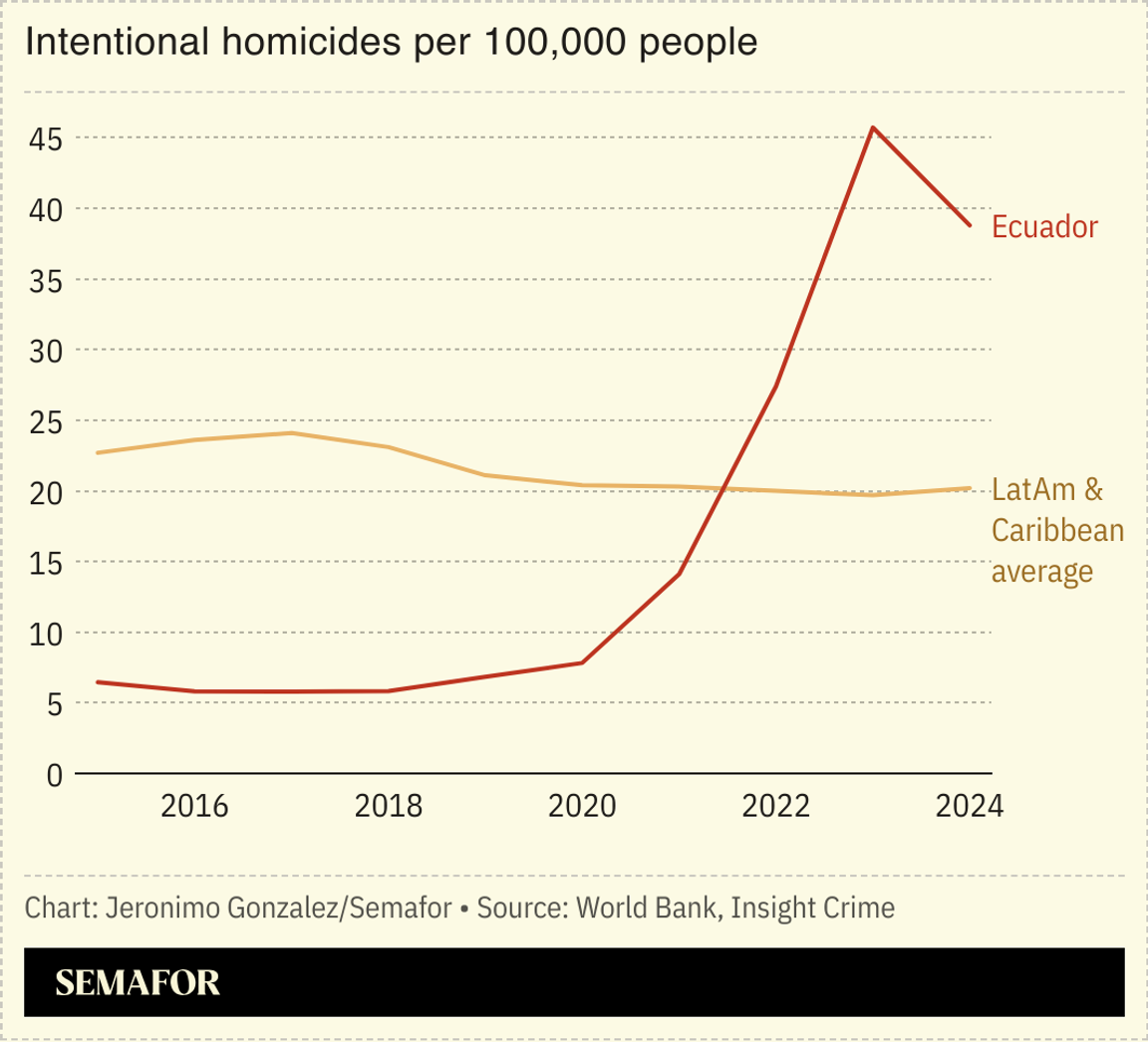 Protesters in Ecuador attacked a car carrying President Daniel Noboa, the latest demonstration of increasingly violent discontent against his government. A minister said around 500 people threw rocks at Noboa’s motorcade, while reports suggested bullets may have been fired, too. Noboa faces a mounting array of challenges since securing reelection in April, with murder rates in once-peaceful Ecuador rising to among the highest globally, fueled in part by cocaine trafficking from neighboring Colombia. In a bid to tame brewing unrest, Noboa recently walked back the scrapping of a fuel subsidy: The entitlement had been draining government coffers, but ending it sparked widespread anger amid cooling economic growth that has left millions struggling to get by. |
|
Somaliland wins port giant’s backing |
|
|